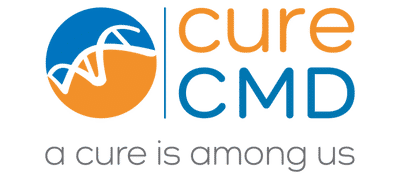预约演示
更新于:2025-10-30

Valerion Therapeutics LLC
更新于:2025-10-30
概览
标签
神经系统疾病
其他疾病
遗传病与畸形
融合蛋白
ADC
疾病领域得分
一眼洞穿机构专注的疾病领域
暂无数据
技术平台
公司药物应用最多的技术
暂无数据
靶点
公司最常开发的靶点
暂无数据
| 排名前五的药物类型 | 数量 |
|---|---|
| ADC | 1 |
| 融合蛋白 | 1 |
| 排名前五的靶点 | 数量 |
|---|---|
| Enzymes(酶) | 1 |
| MTM1(肌微管蛋白) | 1 |
关联
2
项与 Valerion Therapeutics LLC 相关的药物靶点 |
作用机制 Enzymes stimulators |
非在研适应症- |
最高研发阶段临床前 |
首次获批国家/地区- |
首次获批日期- |
靶点 |
作用机制 MTM1表达刺激剂 |
在研适应症 |
非在研适应症- |
最高研发阶段药物发现 |
首次获批国家/地区- |
首次获批日期- |
3
项与 Valerion Therapeutics LLC 相关的临床试验NCT02898753
A Three-Month, Open-Label, Randomized, Dose-escalation Study of the Safety, Tolerability, Pharmacokinetics, Pharmacodynamics and Preliminary Efficacy of VAL-1221 Versus Myozyme®/Lumizyme® in Patients With Late-Onset GSD-II (Pompe Disease) Followed by Open-Label Treatment With VAL-1221 in All Patients
This Phase I/II open-label, randomized, dose-escalation study will assess the safety, tolerability, pharmacokinetics, pharmacodynamics, and preliminary efficacy of VAL-1221 versus Myozyme®/Lumizyme® in participants with late-onset glycogen storage disease-II (GSD-II) (Pompe disease)
开始日期2017-06-21 |
申办/合作机构 |
NCT02057705
Prospective, Longitudinal Study of the Natural History and Functional Status of Patients With Myotubular Myopathy (MTM)
This is a prospective, non-interventional, longitudinal study of the natural history and function of approximately 60 patients with MTM from the United States, Canada and Europe. The duration of the study, including the enrollment period, will be 36 months. Data from the study will be used to characterize the disease course of MTM and determine which outcome measures will be the best to assess the efficacy of potential therapies.
开始日期2014-02-01 |
申办/合作机构 |
NCT01817946
Myotubular Myopathy Genetic Testing Study
Myotubular myopathy (XLMTM) is an X-linked disorder caused by mutations in the myotubularin gene (MTM1). The clinical spectrum is variable and ranges from individuals who require a wheelchair and full time breathing support to those who are able to walk and breathe on their own. Symptoms of myotubular myopathy include long faces, facial weakness with eye muscle weakness, breathing support with a muscle biopsy demonstrating central nucleated fibers. These symptoms may be caused by mutations or changes in the MTM1, BIN1 (bridging integrator 1), DNM2 (dynamin 2) and RYR1 (ryanodine receptor 1) genes. However, the majority are caused by mutations in the MTM1 gene. Some patients with symptoms consistent with myotubular myopathy who initially have negative testing of the MTM1 gene were later found to have a unique type of change in the MTM1 gene. This unique change, called a deletion or duplication, can be found with a different type of genetic test called a CGH (comparative genomic hybridization) array.
Investigators do not know how frequent deletions and duplications are in patients with X-linked myotubular myopathy. Recently, there have been advances in identifying potential treatments for XLMTM. The next step will be to proceed with clinical trials of potential treatments. In order to be ready for clinical trials, it is important that investigators find the specific genetic change that is causing XLMTM in people with this diagnosis. This study will attempt to find changes in the MTM1 gene in individuals who have clinical symptoms consistent with a diagnosis of XLMTM. Participants will be asked to enroll in the CMDIR (Congenital Muscle Disease International Registry), complete a brief clinical survey, provide access to medical records, and provide a saliva or blood sample for genetic testing. Results of genetic testing will be communicated to participants by the physician specified in the consent by the signing person.
Study Hypothesis:
Not all individuals with a clinical diagnosis of XLMTM have access to genetic testing. Investigators know that deletions and duplications of the MTM1 gene can cause XLMTM. Investigators will find more individuals with XLMTM by performing genetic testing of the MTM1 gene, including CGH array for deletions and duplications.
Investigators do not know how frequent deletions and duplications are in patients with X-linked myotubular myopathy. Recently, there have been advances in identifying potential treatments for XLMTM. The next step will be to proceed with clinical trials of potential treatments. In order to be ready for clinical trials, it is important that investigators find the specific genetic change that is causing XLMTM in people with this diagnosis. This study will attempt to find changes in the MTM1 gene in individuals who have clinical symptoms consistent with a diagnosis of XLMTM. Participants will be asked to enroll in the CMDIR (Congenital Muscle Disease International Registry), complete a brief clinical survey, provide access to medical records, and provide a saliva or blood sample for genetic testing. Results of genetic testing will be communicated to participants by the physician specified in the consent by the signing person.
Study Hypothesis:
Not all individuals with a clinical diagnosis of XLMTM have access to genetic testing. Investigators know that deletions and duplications of the MTM1 gene can cause XLMTM. Investigators will find more individuals with XLMTM by performing genetic testing of the MTM1 gene, including CGH array for deletions and duplications.
开始日期2013-03-01 |
申办/合作机构  Cure CMD Cure CMD [+3] |
100 项与 Valerion Therapeutics LLC 相关的临床结果
登录后查看更多信息
0 项与 Valerion Therapeutics LLC 相关的专利(医药)
登录后查看更多信息
1
项与 Valerion Therapeutics LLC 相关的新闻(医药)2022-10-14
A relatively unknown clinical-stage biotech, with a medical chief who’s been involved in multiple BridgeBio ventures, has raised a small financing round and appears to already have a pricing range in mind for a rare disease asset nearing a Phase II start.
The company formed in 2020 and has raised close to $20 million, according to two
SEC filings
from this week and last August.
Phoenicis Therapeutics is an amalgamation of at least five biotechs.
Under its wings are 2021 merger partner Wings Therapeutics, launched by Dutch biotech ProQR and funded by an Eddie Vedder-supported foundation; SCIDEC Therapeutics; Duchenne muscular dystrophy-focused MyoTherix; FIBRX Derm and RNADerm Therapeutics, according to the LinkedIn page of a board member. The last three had raised a couple million dollars, according to SEC filings dating back to 2015.
Dutch rare disease biotech ProQR carves out new company dedicated to epidermolysis bullosa
Investors mainly include philanthropies, according to Phoenicis’ website: CureDuchenne, Cure EB, debra of America, DEBRA UK, Congressionally Directed Medical Research Programs, EBMRF and others.
The company has a few clinical programs in the works.
First up is a 12-week placebo-controlled Phase II testing whether 400 mg of the oral asset PTM-001 can affect certain protein levels in lesional skin biopsies. The study,
not yet recruiting
, aims to enroll 50 patients with hidradenitis suppurativa, a chronic skin condition marked by lumps in the armpits, groin and other areas. Eventually, Phoenicis thinks there’s also potential in Duchenne muscular dystrophy and Charcot-Marie-Tooth disease type 1A.
Next up is a small eight-person Phase I/II, also yet to start recruitment. The company will look at using a 10 mg/g gel for dominant and recessive forms of dystrophic epidermolysis bullosa in patients who have mutations in exon 73 of the COL7A1 gene. EB is sometimes referred to as “butterfly skin” because of skin and mucosal fragility, with signs of skin scarring and blistering.
The rare disorder has been the target of a few biotechs in recent years, with some late-stage trials in the works.
BridgeBio reported positive results for the recessive form of DEB in May, and Jeff Aronin’s Castle Creek Biosciences raised $112 million in May to
complete a Phase III study
of a gene therapy for wounds caused by the rare genetic disorder. And Abeona Therapeutics expects topline results from its Phase III trial of a cell therapy for the recessive form within weeks,
the biotech said last week
, nearly three full years after a
clinical hold was lifted
.
While Phoenicis has yet to start its Phase II study, the company already has pricing plans for its gel, dubbed PTW-002. The company outlines ambitions for $250 million to $350 million in peak annual sales for the gel, based on “assumed annual pricing levels of $250k-400k,” according to Phoenicis’ website. The biotech counts 7,650 patients in the US and Europe.
A third asset is publicly listed on the company’s website, which touts completion of IND-enabling toxicology studies and plans for a Phase I/II in DEB this year. Phoenicis claims the topical, named PTD-003, can prevent and reverse fibrosis and hopes to study the asset as a treatment for keloids, hypertrophic scars, scarring due to EB and others, including idiopathic pulmonary fibrosis.
All of those assets are being led by medical chief Hal Landy, whose LinkedIn resume points to CMO posts at a slate of skin disease-focused companies, including BridgeBio’s Phoenix Tissue Repair and
90% BridgeBio-owned
Molecular Skin Therapeutics, as well as Wings and FIBRX. He also lists being the former CMO of 4s3 Bioscience.
Also at 4s3, a UCLA spinout that later rebranded to Valerion Therapeutics, was CEO Deborah Ramsdell. She’s in the same post at Phoenicis after Valerion shuttered in 2020, according to her LinkedIn page.
Phoenicis didn’t respond to multiple emailed requests for comment.
合作基因疗法细胞疗法并购
100 项与 Valerion Therapeutics LLC 相关的药物交易
登录后查看更多信息
100 项与 Valerion Therapeutics LLC 相关的转化医学
登录后查看更多信息
组织架构
使用我们的机构树数据加速您的研究。
登录
或

管线布局
2026年03月01日管线快照
管线布局中药物为当前组织机构及其子机构作为药物机构进行统计,早期临床1期并入临床1期,临床1/2期并入临床2期,临床2/3期并入临床3期
药物发现
1
1
临床前
其他
4
登录后查看更多信息
药物交易
使用我们的药物交易数据加速您的研究。
登录
或

转化医学
使用我们的转化医学数据加速您的研究。
登录
或

营收
使用 Synapse 探索超过 36 万个组织的财务状况。
登录
或

科研基金(NIH)
访问超过 200 万项资助和基金信息,以提升您的研究之旅。
登录
或

投资
深入了解从初创企业到成熟企业的最新公司投资动态。
登录
或

融资
发掘融资趋势以验证和推进您的投资机会。
登录
或

生物医药百科问答
全新生物医药AI Agent 覆盖科研全链路,让突破性发现快人一步
立即开始免费试用!
智慧芽新药情报库是智慧芽专为生命科学人士构建的基于AI的创新药情报平台,助您全方位提升您的研发与决策效率。
立即开始数据试用!
智慧芽新药库数据也通过智慧芽数据服务平台,以API或者数据包形式对外开放,助您更加充分利用智慧芽新药情报信息。
生物序列数据库
生物药研发创新
免费使用
化学结构数据库
小分子化药研发创新
免费使用